
Wörthersee: Austria's Azure Gem
Nestled in the southern Austrian state of Carinthia, Wörthersee is a pristine lake that captivates visitors with its clear blue waters and stunning alpine backdrop. Known as one of Austria’s best-loved summer destinations, Wörthersee offers a perfect blend of natural beauty and vibrant local culture. The area is renowned for its mild Mediterranean climate, making it an ideal spot for swimming, boating, and sunbathing during the warmer months. Wörthersee is surrounded by charming towns such as Velden, Pörtschach, and Klagenfurt, each offering their unique attractions and festivities. Velden is famous for its lively casino and bustling nightlife, while Pörtschach is known for its serene promenades and beautiful gardens. Klagenfurt, the capital of Carinthia, boasts a rich history and numerous museums, including the fascinating Minimundus miniature park. For nature enthusiasts, the region around Wörthersee provides ample opportunities for hiking and cycling. The surrounding hills and forests are crisscrossed with well-marked trails that offer spectacular views of the lake and the distant mountains. Additionally, Wörthersee hosts several cultural events throughout the year, including the annual Ironman Austria triathlon and the Wörthersee Classic Festival, which features vintage cars and boats.
Local tips in Wörthersee
- Visit in late spring or early autumn to avoid peak tourist crowds and enjoy pleasant weather.
- Rent a bike and explore the scenic cycling routes around the lake for a leisurely day out.
- Take a boat tour to fully appreciate the beauty of Wörthersee and its surrounding landscapes.
- Try local Carinthian cuisine, especially the traditional dish 'Kasnudeln' – cheese-filled pasta.
- Check out the local events calendar as Wörthersee hosts many festivals and cultural activities.
Wörthersee: Austria's Azure Gem
Nestled in the southern Austrian state of Carinthia, Wörthersee is a pristine lake that captivates visitors with its clear blue waters and stunning alpine backdrop. Known as one of Austria’s best-loved summer destinations, Wörthersee offers a perfect blend of natural beauty and vibrant local culture. The area is renowned for its mild Mediterranean climate, making it an ideal spot for swimming, boating, and sunbathing during the warmer months. Wörthersee is surrounded by charming towns such as Velden, Pörtschach, and Klagenfurt, each offering their unique attractions and festivities. Velden is famous for its lively casino and bustling nightlife, while Pörtschach is known for its serene promenades and beautiful gardens. Klagenfurt, the capital of Carinthia, boasts a rich history and numerous museums, including the fascinating Minimundus miniature park. For nature enthusiasts, the region around Wörthersee provides ample opportunities for hiking and cycling. The surrounding hills and forests are crisscrossed with well-marked trails that offer spectacular views of the lake and the distant mountains. Additionally, Wörthersee hosts several cultural events throughout the year, including the annual Ironman Austria triathlon and the Wörthersee Classic Festival, which features vintage cars and boats.
When is the best time to go to Wörthersee?
Iconic landmarks you can’t miss
Pyramidenkogel Tower
Experience breathtaking panoramic views from the world's tallest wooden observation tower, featuring Europe's longest slide, in Carinthia, Austria.
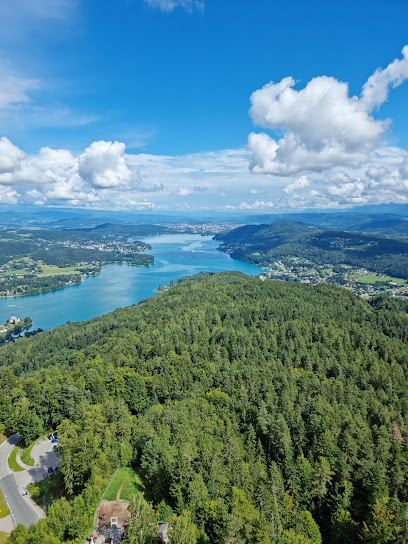
Lindwurmbrunnen
Discover the iconic Lindwurmbrunnen in Klagenfurt, a 16th-century fountain featuring a mythical dragon and a symbol of local heritage.
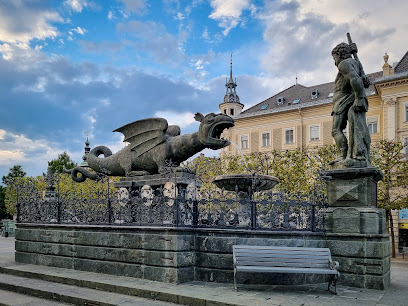
Reifnitz am Wörthersee
Discover Reifnitz am Wörthersee: A picturesque lakeside village offering relaxation, water activities, and cultural charm in the heart of Carinthia.
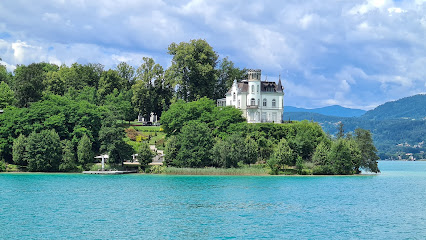
Maria Loreto Castle
Experience history, romance, and culinary delights at Maria Loreto Castle, a stunning lakeside venue on Klagenfurt's picturesque Lake Wörthersee.
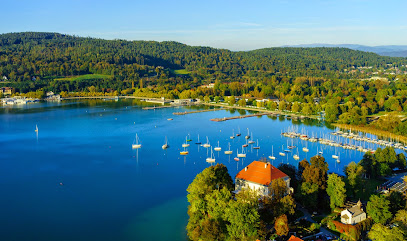
Wörtherseemandl fountain
Discover the legend of Lake Wörthersee at Klagenfurt's iconic Wörtherseemandl Fountain, a bronze masterpiece by Heinz Goll on Dr.-Arthur-Lemisch-Platz.
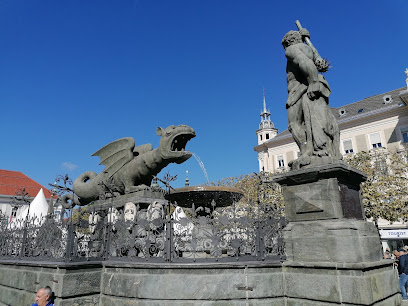
Zillhöhe
Breathtaking panoramic views of Klagenfurt and Lake Wörthersee from this scenic observation deck on Kreuzbergl mountain.
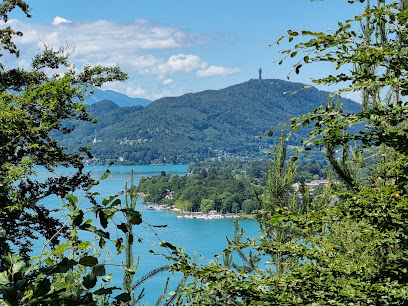
Wörthersee Landschaftlich Schöner Ort
Discover Wörthersee: Austria's stunning turquoise lake offering water sports, hiking, and charming lakeside towns for a perfect summer getaway.
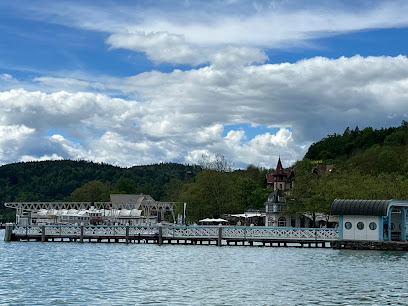
Schloss Hornstein
Discover Schloss Hornstein, a charming 15th-century castle on Wörthersee's wooded slopes, offering a tranquil escape into Austrian history and beauty.
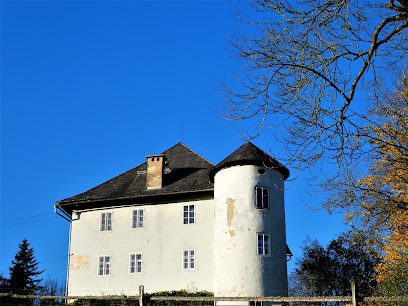
Villa Helene
Experience the architectural elegance of Villa Helene in Velden am Wörthersee, a stunning lakeside villa with a rich history and captivating views.
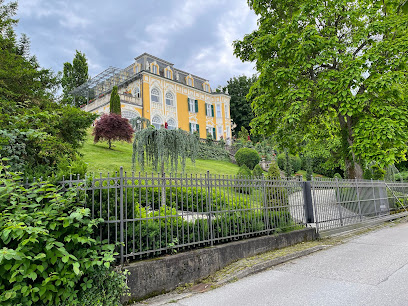
Villacher Tor
Discover Klagenfurt's past at the Villacher Tor, a historic landmark offering a glimpse into the city's medieval origins and enduring spirit.
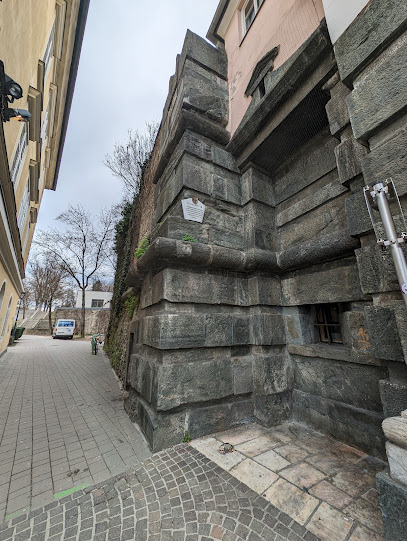
Unmissable attractions to see
Pyramidenkogel Tower
Experience breathtaking panoramic views from the world's tallest wooden observation tower, complete with Europe's longest slide, in the heart of Carinthia.
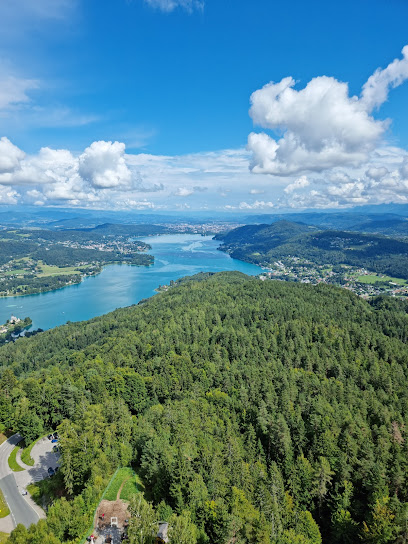
Minimundus
Explore the world's most iconic landmarks in miniature at Minimundus, Klagenfurt. A unique and enchanting experience for all ages.
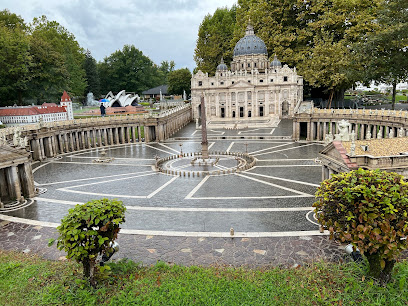
Planica Nordic Centre
Experience the thrill of ski jumping and flying at Planica Nordic Centre, a world-class sports complex nestled in the stunning Slovenian Alps.
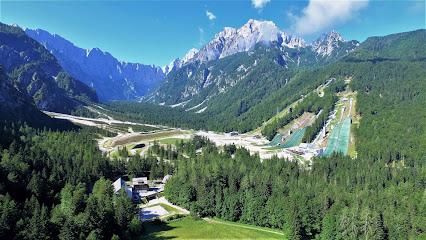
Stadtwerke Strandbad Klagenfurt
Experience sun, sand, and swimming at one of Europe's largest inland lidos on the beautiful Wörthersee in Klagenfurt, Austria.
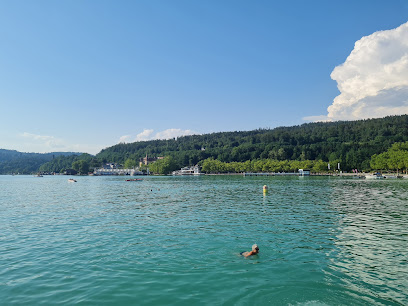
Europapark
Discover Klagenfurt's Europapark: a vibrant green space with art, recreation, and relaxation by Lake Wörthersee, perfect for families and nature lovers.
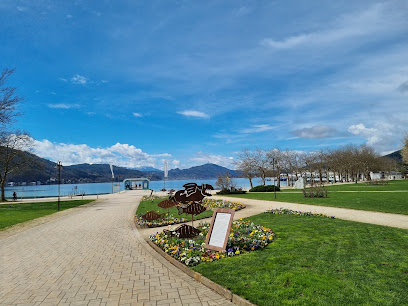
Neuer Platz
Experience Klagenfurt's vibrant heart at Neuer Platz: home to the iconic Lindwurmbrunnen, historical monuments, and lively events in a picturesque setting.
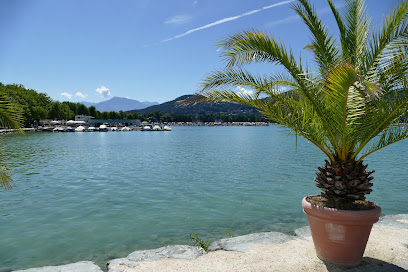
Tierpark Rosegg
Discover Carinthia's largest animal park: a blend of wildlife, history, and outdoor fun for the whole family near Wörthersee.
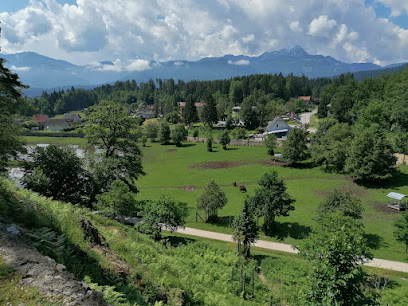
The Heart of Bled
Experience the enchanting beauty of Lake Bled: a Slovenian paradise with a fairytale island, medieval castle, and breathtaking alpine views.
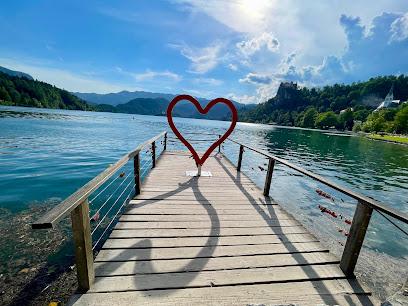
Reptilienzoo Happ
Explore Austria's largest reptile zoo: a fascinating world of snakes, lizards, turtles, and more in Klagenfurt!
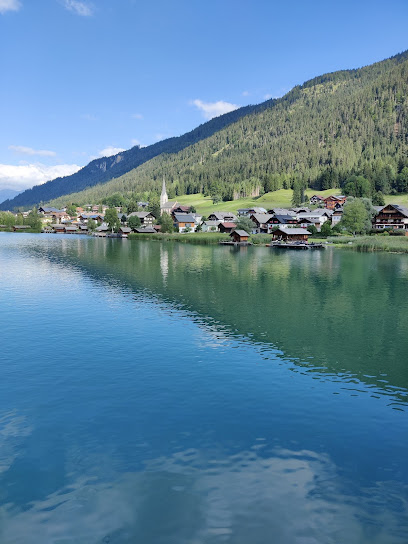
Laghi di Fusine
Discover the breathtaking beauty of Laghi di Fusine, a jewel of the Julian Alps with crystal-clear waters and stunning mountain views.
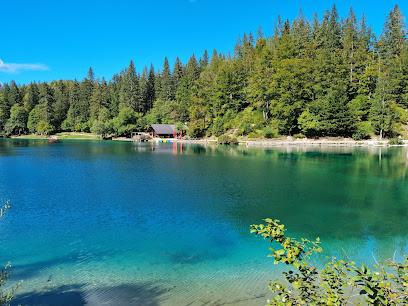
Promenadenbad the municipality Pörtschach
Experience lakeside bliss at Promenadenbad Pörtschach: fun for the whole family on the stunning shores of Wörthersee!
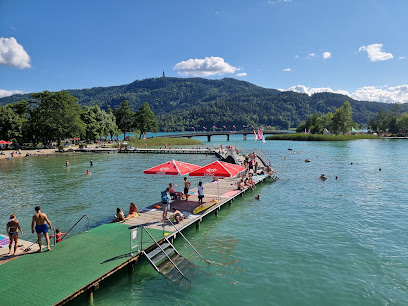
Reifnitz am Wörthersee
Discover Reifnitz am Wörthersee: A serene Austrian village with stunning lake views, outdoor adventures, and rich cultural experiences.
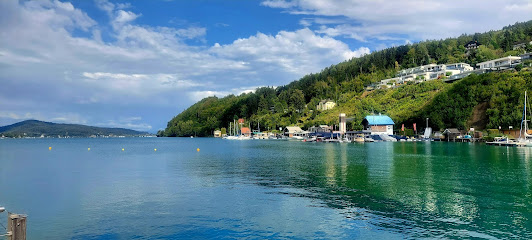
Stein-Golf
Experience golfing bliss amidst stunning alpine scenery at Stein-Golf on Lake Wörthersee, a perfect blend of sport and nature in Reifnitz, Austria.
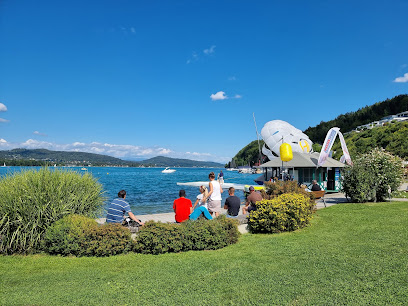
Zauberwald am Rauschelesee
Discover a whimsical world of handcrafted play stations and natural beauty at Zauberwald am Rauschelesee, a Carinthian family paradise since 1996.
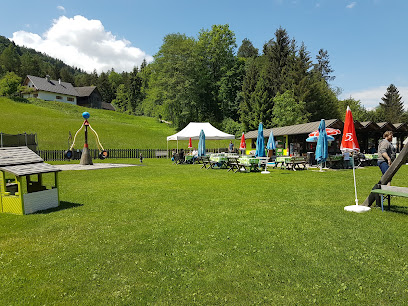
Austria
Explore Klagenfurt's Landhaushof: A Renaissance masterpiece with stunning architecture, rich history, and the captivating Hall of Coats of Arms.
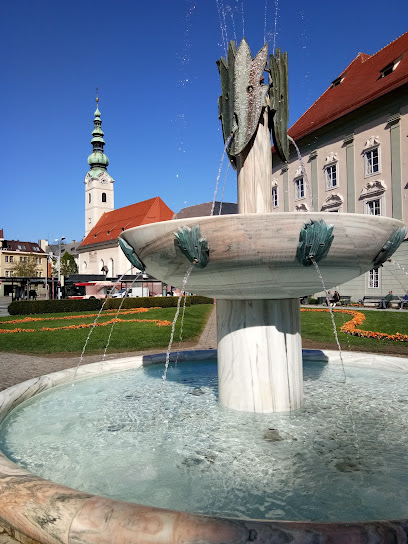
Essential places to dine
Villa Lido - Pizzeria Trattoria
Discover authentic Italian flavors at Villa Lido - Pizzeria Trattoria while enjoying breathtaking views of Wörthersee in Klagenfurt.
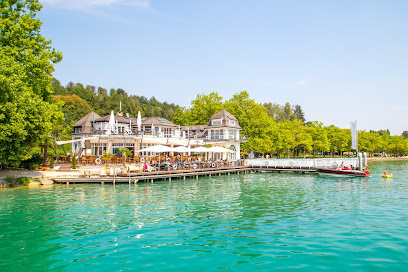
Restaurant Maria Loretto
Experience exquisite local cuisine with breathtaking views at Restaurant Maria Loretto by Wörthersee in Klagenfurt.
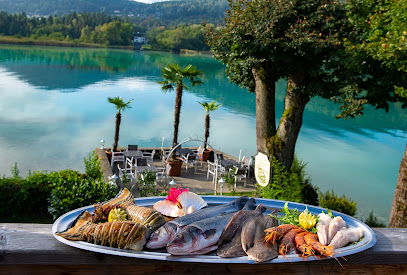
GORITSCHNIGGs Lunch am Tag | Steakhaus am Abend
Discover Goritschnigg's Steakhouse: A culinary gem in Velden am Wörthersee offering exquisite steaks and authentic Austrian cuisine.
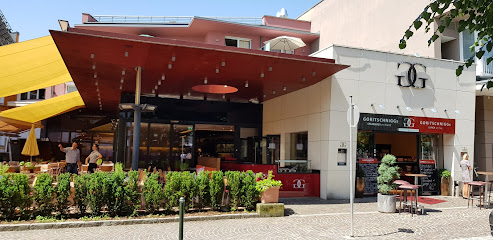
see.gast.haus Krumpendorf
Discover authentic Austrian flavors at see.gast.haus Krumpendorf with breathtaking views of Lake Wörthersee.
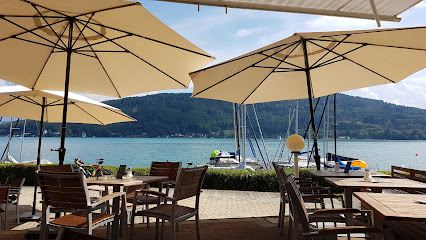
LAKESIDE
Experience exquisite fusion cuisine at Lakeside Lounge while enjoying breathtaking views of Wörthersee in Reifnitz.
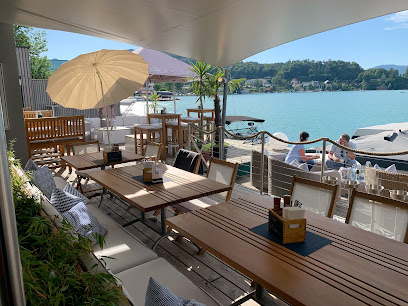
Zocklwirt
Discover authentic Austrian cuisine at Zocklwirt in Pörtschach am Wörthersee – a must-visit restaurant offering traditional dishes and local wines.
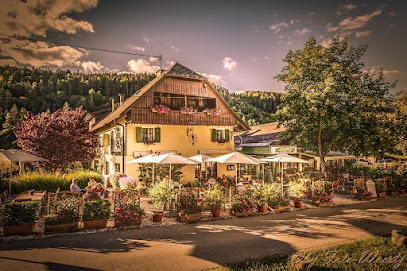
Hotel Restaurant Rösch
Discover exquisite dining and luxurious stays at Hotel Restaurant Rösch by Wörthersee – where culinary art meets stunning natural beauty.

Little Italy
Savor authentic Italian flavors at Little Italy in Pörtschach am Wörthersee – where every meal feels like a celebration.
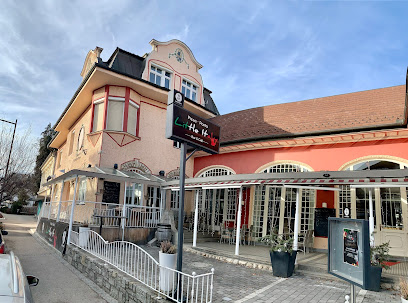
BAD STICH Seerestaurant
Experience exquisite dining at BAD STICH Seerestaurant by Wörthersee - where culinary excellence meets breathtaking lakeside views.
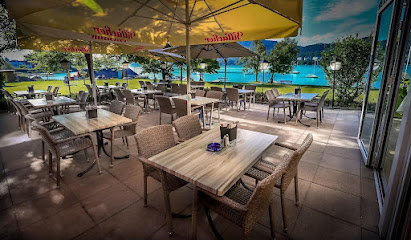
Sunset Klagenfurt
Experience exquisite dining with breathtaking views at Sunset Klagenfurt on Wörthersee - where culinary delight meets natural beauty.
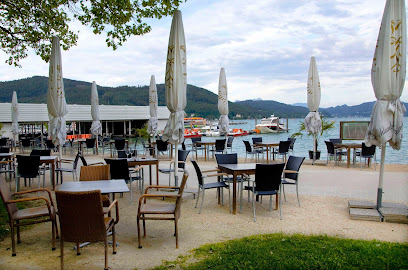
Seerestaurant Rosé
Experience exquisite Mediterranean dining at Seerestaurant Rosé by Lake Wörthersee with breathtaking views and exceptional flavors.
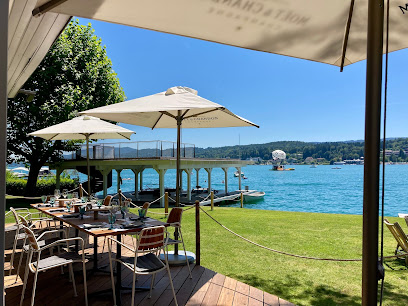
JILLY BEACH Wörthersee
Discover exquisite dining at Jilly Beach Wörthersee with stunning lake views and a diverse menu celebrating local flavors.
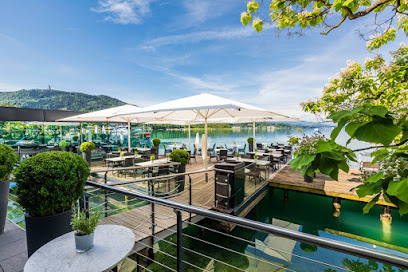
Seespitz - Restaurant & Living
Experience exquisite dining at Seespitz - Restaurant & Living with breathtaking views of Lake Wörthersee and exceptional Austrian cuisine.
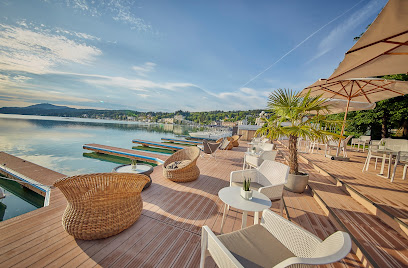
Hotel-Restaurant Veldener Traumschiff
Discover a lakeside haven at Hotel-Restaurant Veldener Traumschiff - where exquisite cuisine meets stunning Wörthersee views.
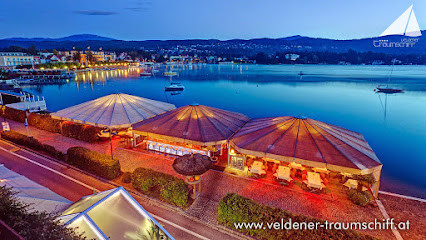
Gourmet Restaurant Hubert Wallner
Discover culinary artistry at Gourmet Restaurant Hubert Wallner, where fine dining meets breathtaking views of Lake Wörthersee in Austria.
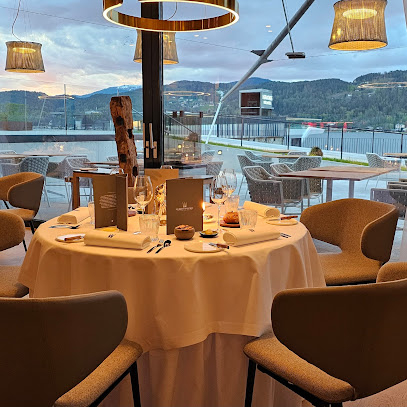
Markets, malls and hidden boutiques
City-Arkaden Klagenfurt
Explore City-Arkaden Klagenfurt, the ultimate shopping experience with diverse shops, delicious dining, and vibrant atmosphere in the heart of Austria.
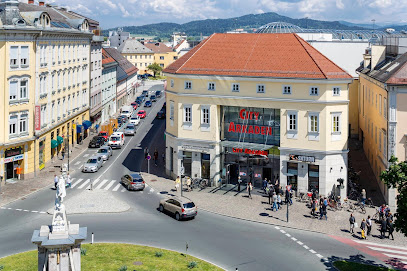
SÜDPARK Shopping Center Klagenfurt
Discover the ultimate shopping experience at SÜDPARK Shopping Center Klagenfurt, where fashion, food, and fun come together in one vibrant location.
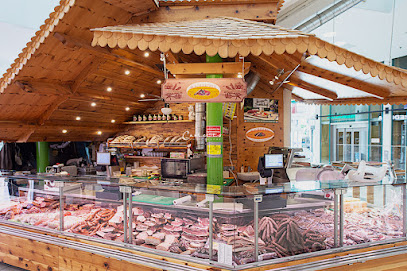
Elbenwald
Experience the enchanting world of Elbenwald in Klagenfurt, where collectibles and unique gifts come to life in a magical shopping adventure.
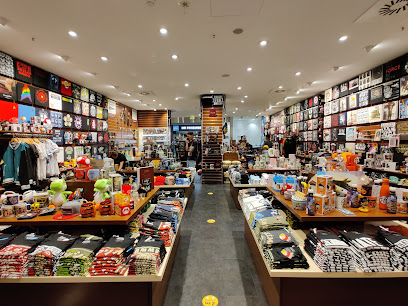
BILLA
Experience the local flavors at BILLA in Reifnitz, your go-to supermarket for fresh produce and regional specialties in Austria.
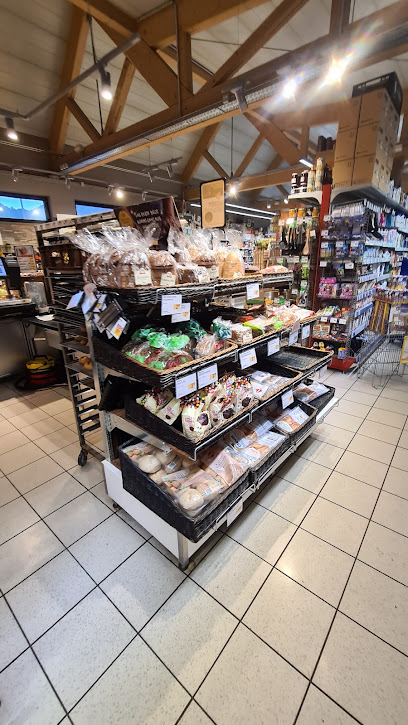
Klagenfurt Outlets
Discover unbeatable deals and a wide variety of brand-name products at Klagenfurt Outlets, the ultimate shopping destination in Austria.
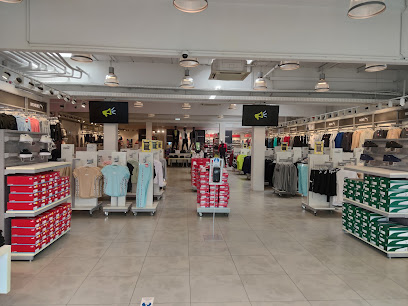
DATTELBÄR GmbH
Discover the best of organic living at DATTELBÄR GmbH, where health meets local flavor in a vibrant shopping experience.
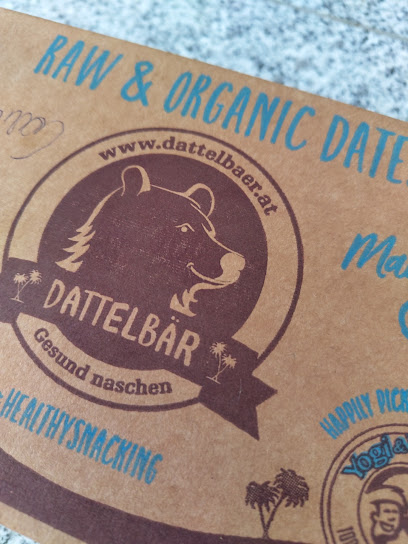
BIPA
Discover BIPA in Pörtschach am Wörthersee for premium cosmetics, perfumes, and wellness products in a charming lakeside town.
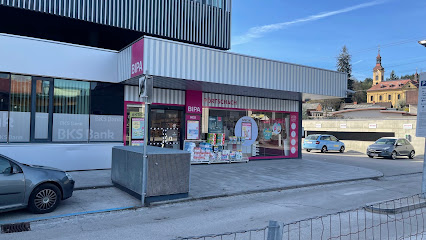
K u. K - Shop enjoy the difference
Explore K u. K - Shop in Velden am Wörthersee for unique gifts and souvenirs that capture the heart of Austria's stunning lakeside beauty.
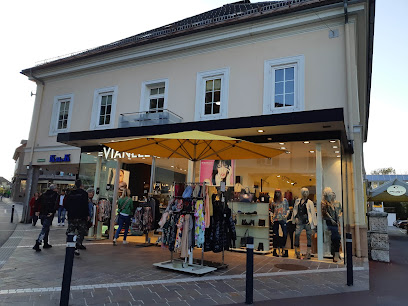
peyker-modellbahn-design
Explore an extensive selection of model trains and accessories at peyker-modellbahn-design in the charming lakeside town of Pörtschach am Wörthersee.

ROCKYFY
Experience the exquisite craftsmanship of jewelry design at ROCKYFY in Pörtschach am Wörthersee, where beauty meets artistry.
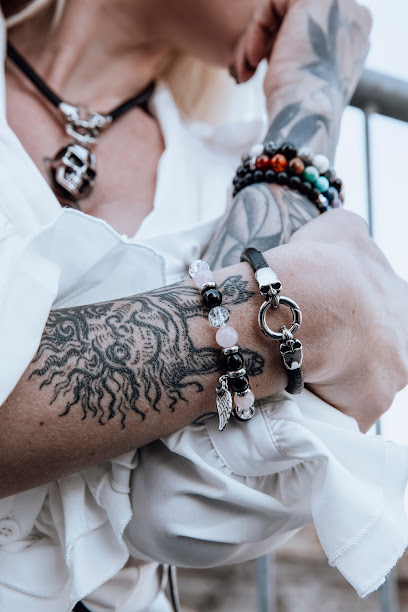
B15 am Gemonaplatz
Discover the chic styles at B15 am Gemonaplatz, a premier clothing store in Velden am Wörthersee, where fashion meets Austrian charm.
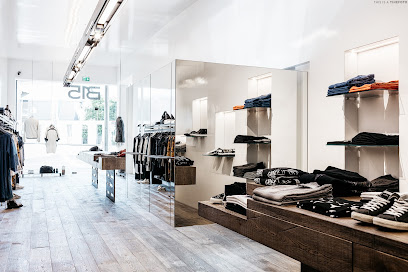
K u. K - Shop , enjoy the difference
Discover unique gifts and toys at K u. K - Shop in Velden am Wörthersee, where local craftsmanship meets delightful charm.
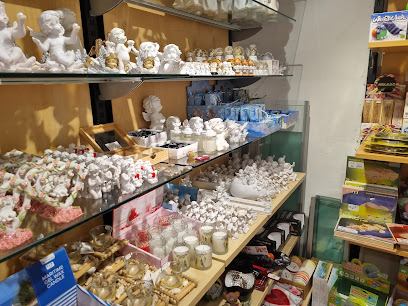
Portofino 1975
Explore Portofino 1975 in Pörtschach am Wörthersee for a unique shopping experience in men's fashion, offering style, quality, and personalized service.
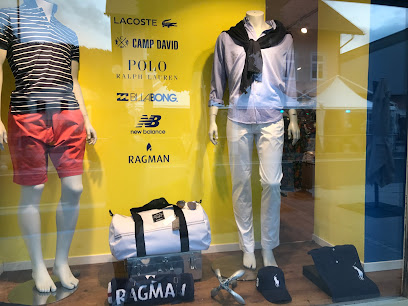
pinkabell e.U.
Explore Pinkabell e.U. in Pörtschach am Wörthersee, the ultimate destination for pet lovers seeking quality supplies and expert advice.
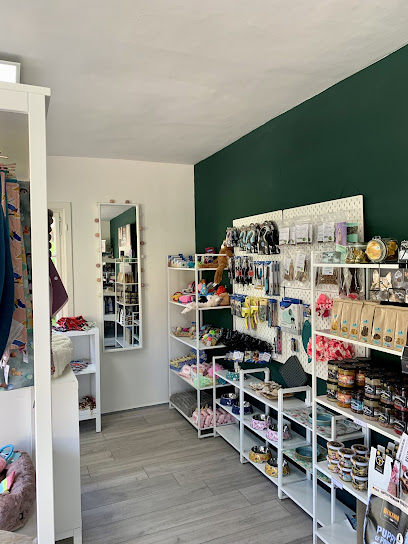
I LOVE KÄRNTEN SHOP www.kaernten.news
Explore I LOVE KÄRNTEN SHOP for unique souvenirs and wedding keepsakes that celebrate the essence of Kärnten in Klagenfurt am Wörthersee.
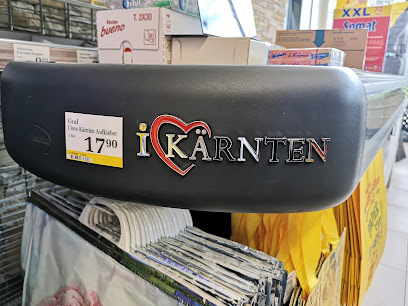
Essential bars & hidden hideouts
151 Restaurant & Bar
Experience the vibrant culinary scene at 151 Restaurant & Bar in Klagenfurt – where exquisite flavors meet a lively atmosphere.
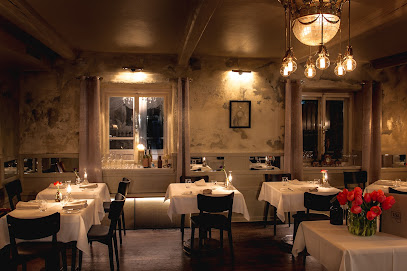
GIG Bar & Cafe
Experience the lively ambiance of GIG Bar & Cafe in Klagenfurt - a perfect blend of drinks, food, and entertainment.
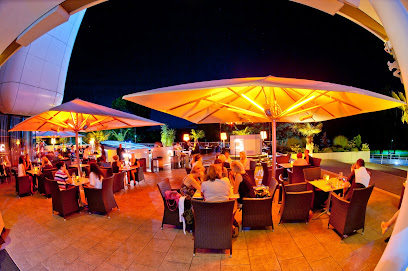
Monkey Circus
Discover the vibrant flavors and fun atmosphere at Monkey Circus, Velden am Wörthersee's top dining destination for tourists and locals alike.
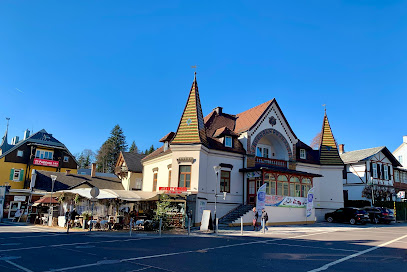
SOL Beachclub
Discover the ultimate luxury experience at SOL Beachclub, where exquisite dining meets breathtaking views of Wörthersee in Austria.
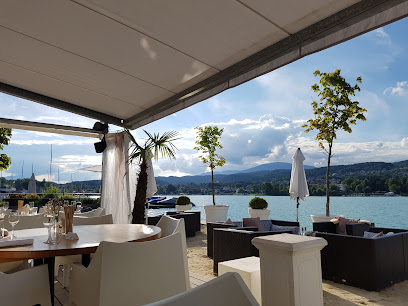
Hollywood Cafe-Bar Velden
Experience the lively atmosphere of Hollywood Cafe-Bar, a perfect blend of a cafe and bar on the stunning shores of Lake Wörthersee.
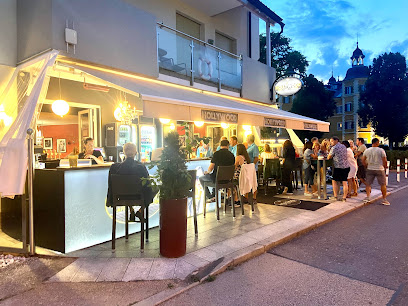
Café Bar Börserl
Discover the charm of Café Bar Börserl, where lakeside views meet delightful coffee, exquisite bistro dishes, and refreshing ice cream in Velden am Wörthersee.
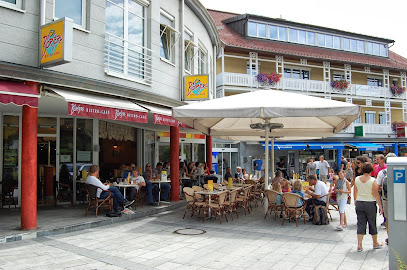
Mec's Café Bar
Discover the perfect blend of café comfort and bar excitement at Mec's Café Bar in Pörtschach am Wörthersee, where every visit feels like a getaway.
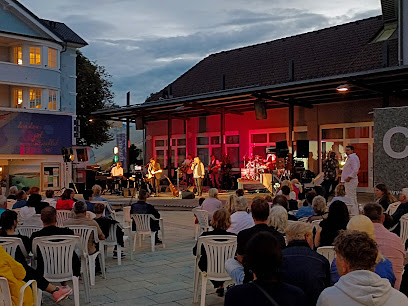
GIG Bar Club Café Velden
Discover the lively atmosphere of GIG Bar Club Café Velden, where exquisite cocktails and vibrant nightlife come together in a stunning lakeside setting.
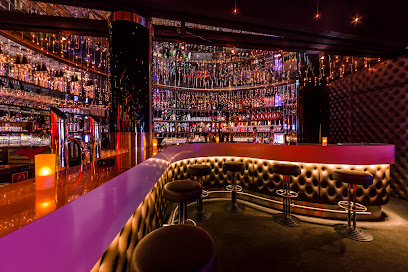
Rocket Restaurant & Bistro Velden
Savor delectable dishes and unwind by the beautiful Wörthersee at Rocket Restaurant & Bistro, a must-visit culinary hotspot in Velden.
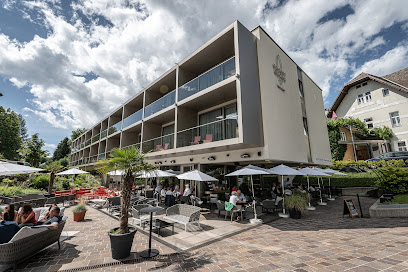
Lido Lounge
Experience the perfect blend of relaxation and vibrant atmosphere at Lido Lounge by Wörthersee, where stunning lake views meet delightful drinks.
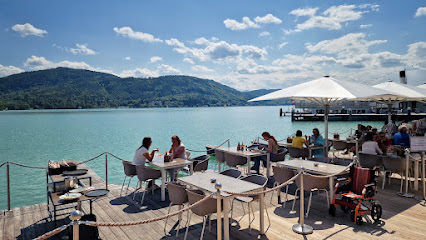
Seebar Linde
Discover the charm of Seebar Linde, a lakeside bar and restaurant offering exquisite cuisine and stunning views at Lake Wörth.
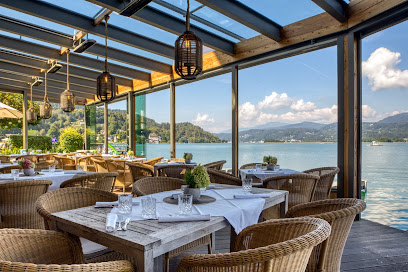
Bluesiana Rock Cafe Velden
Discover the lively blues and rock atmosphere at Bluesiana Rock Cafe in Velden am Wörthersee, where unforgettable music meets delicious food.
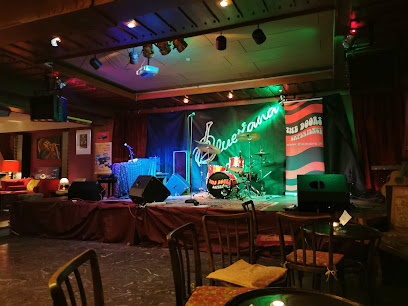
Stamperl Bar
Experience vibrant nightlife at Stamperl Bar in Velden am Wörthersee, where great drinks and a lively atmosphere await.
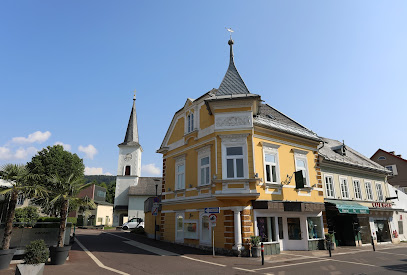
Krügerl Bar
Discover the essence of nightlife at Krügerl Bar in Velden am Wörthersee, where cocktails and camaraderie create unforgettable moments.
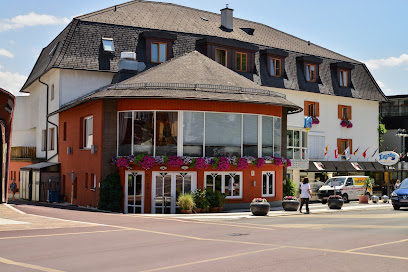
Local Phrases about Wörthersee
-
- HelloServus
[ˈsɛɐvʊs] - GoodbyeAuf Wiedersehen
[aʊ̯f ˈviːdɐzeːən] - YesJa
[ja] - NoNein
[naɪ̯n] - Please/You're welcomeBitte
[ˈbɪtə] - Thank youDanke
[ˈdaŋ.kə] - Excuse me/SorryEntschuldigung
[ɛntˈʃʊldɪɡʊŋ] - How are you?Wie geht es dir?
[viː ɡeːt ɛs diːɐ] - Fine. And you?Gut. Und dir?
[ɡuːt ʊnt diːɐ] - Do you speak English?Sprechen Sie Englisch?
[ˈʃprɛçən ziː ˈɛŋlɪʃ] - I don't understandIch verstehe nicht
[ɪç fɛɐˈʃteːə nɪçt]
- HelloServus
-
- I'd like to see the menu, pleaseIch hätte gerne die Speisekarte, bitte
[ɪç ˈhɛtə ˈɡɛɐnə diː ˈʃpaɪ̯zəˌkaʁtə ˈbɪtə] - I don't eat meatIch esse kein Fleisch
[ɪç ˈɛsə kaɪ̯n flaɪ̯ʃ] - Cheers!Prost!
[pʁɔst] - I would like to pay, pleaseIch möchte bezahlen, bitte
[ɪç mœçtə bəˈʦaːlən ˈbɪtə]
- I'd like to see the menu, pleaseIch hätte gerne die Speisekarte, bitte
-
- Help!Hilfe!
[ˈhɪlfə] - Go away!Geh weg!
[ɡeː vɛk] - Call the Police!Rufen Sie die Polizei!
[ˈʁuːfən ziː diː pɔˈliːtsaɪ̯] - Call a doctor!Rufen Sie einen Arzt!
[ˈʁuːfən ziː ˈaɪ̯nən ˈaʁts] - I'm lostIch habe mich verirrt
[ɪç ˈhaːbə mɪç fɛˈrɪʁt] - I'm illIch bin krank
[ɪç bɪn kraŋk]
- Help!Hilfe!
-
- I'd like to buy...Ich möchte kaufen...
[ɪç mœçtə ˈkaʊ̯fən] - I'm just lookingIch schaue nur
[ɪç ˈʃaʊ̯ə nuːɐ] - How much is it?Wie viel kostet das?
[viː fiːl ˈkɔstət das] - That's too expensiveDas ist zu teuer
[das ɪst tsuː ˈtɔʏ̯ɐ] - Can you lower the price?Können Sie den Preis senken?
[ˈkœnən ziː deːn pʁaɪs ˈzɛŋkn̩]
- I'd like to buy...Ich möchte kaufen...
-
- What time is it?Wie spät ist es?
[viː ʃpɛːt ɪst ɛs] - It's one o'clockEs ist ein Uhr
[ɛs ɪst aɪ̯n ʔuːɐ] - Half past (10)Halb (10)
[halp (zɛhn)] - MorningMorgen
[ˈmɔʁɡən] - AfternoonNachmittag
[ˈnaχmɪtaːk] - EveningAbend
[ˈaːbənt] - YesterdayGestern
[ˈɡɛstɐn] - TodayHeute
[ˈhɔʏ̯tə] - TomorrowMorgen
[ˈmɔʁɡən] - 1Eins
[aɪ̯ns] - 2Zwei
[tsvaɪ̯] - 3Drei
[dʁaɪ̯] - 4Vier
[fiːɐ] - 5Fünf
[fʏnf] - 6Sechs
[zɛks] - 7Sieben
[ziːbn̩] - 8Acht
[axt] - 9Neun
[nɔʏ̯n] - 10Zehn
[tseːn]
- What time is it?Wie spät ist es?
-
- Where's a/the...?Wo ist ein/der...?
[vo ɪst aɪ̯n/deːɐ] - What's the address?Was ist die Adresse?
[vas ɪst diː ˈadʁɛsə] - Can you show me (on the map)?Können Sie mir das zeigen (auf der Karte)?
[ˈkœnən ziː miː das ˈʦaɪ̯ɡən (aʊ̯f deːɐ ˈkaʁtə)] - When's the next (bus)?Wann kommt der nächste (Bus)?
[van kɔmt deːɐ ˈnɛçstə (bʊs)] - A ticket (to ....)Eine Fahrkarte (nach ....)
[ˈaɪ̯nə ˈfaːɐkaʁtə (nax)]
- Where's a/the...?Wo ist ein/der...?
History of Wörthersee
-
The history of Wörthersee can be traced back to prehistoric times, with archaeological findings indicating that human settlements existed around the lake during the Neolithic period. Various artifacts, including tools and pottery, have been unearthed, providing evidence of early human activity in the region.
-
During the Roman Empire, the area around Wörthersee was part of the province of Noricum. The Romans recognized the strategic importance of the region and established several settlements and roads, facilitating trade and military movements. Ruins of Roman villas and roads can still be seen in the area, attesting to the Roman presence.
-
In the medieval period, Wörthersee became a significant location due to its proximity to important trade routes. The area saw the construction of numerous castles and fortifications, such as the Maria Wörth Church on the peninsula, which dates back to the 9th century. These structures served both defensive and administrative purposes, marking the region's importance in feudal Europe.
-
The 19th century marked a turning point for Wörthersee as it began to attract tourists, particularly from the Austrian and German upper classes. The arrival of the railway in 1864 made the lake more accessible, leading to the construction of grand hotels and villas along its shores. This era established Wörthersee as a premier holiday destination, a reputation that continues to this day.
-
The 20th century brought both challenges and growth to Wörthersee. During World War II, the region saw military activity, but it recovered quickly in the post-war years. The lake became a popular filming location, adding to its allure. Additionally, the development of water sports and recreational activities further cemented its status as a tourist haven.
-
Wörthersee has a rich cultural heritage, influenced by its historical development. The lake is home to various festivals and events, such as the annual Ironman Austria triathlon and the Fête Blanche, a summer festival where participants dress in white. The region's architecture, from medieval churches to modern villas, reflects its diverse history and cultural evolution.
Wörthersee Essentials
-
Wörthersee is located in the Carinthia region of Austria. The nearest international airport is Klagenfurt Airport, approximately 20 kilometers away. From Klagenfurt, you can take a taxi, rent a car, or use public transportation to reach Wörthersee. The journey typically takes around 20 to 30 minutes by road. Alternatively, you can also reach Wörthersee by train, with regular services from major Austrian cities like Vienna, Graz, and Salzburg to the Wörthersee train stations such as Velden, Pörtschach, and Klagenfurt.
-
Wörthersee is well-connected by public transportation, including buses and trains that link the main towns around the lake. Local buses operate within the towns and connect to nearby attractions. Taxis are readily available but can be more expensive. For more flexibility, consider renting a car or a bicycle to explore the area at your own pace. Many hotels and local shops offer bike rentals. Additionally, ferries and boats operate on the lake, providing a scenic way to travel between towns along the shoreline.
-
The official currency in Austria is the Euro (EUR). Credit cards are widely accepted in hotels, restaurants, and shops around Wörthersee. However, it is advisable to carry some cash, especially for smaller establishments, local markets, and rural areas. ATMs are available in major towns such as Velden, Pörtschach, and Klagenfurt, so withdrawing cash is convenient.
-
Wörthersee is generally a safe destination for tourists. Standard precautions should be taken to ensure personal safety. Avoid walking alone at night in unfamiliar areas and always keep an eye on your belongings in crowded places. The towns around Wörthersee do not have specific high-crime areas targeting tourists, but it is always best to stay vigilant and aware of your surroundings.
-
In case of emergency, dial 112 for immediate assistance, which is the emergency number for police, fire, and medical services in Austria. Medical facilities and pharmacies are available in major towns around Wörthersee, such as Klagenfurt and Velden. It is recommended to have travel insurance that covers medical emergencies. For minor health issues, pharmacies can provide over-the-counter medications.
-
Fashion: Do dress appropriately for outdoor activities if you plan to hike or explore nature trails. Casual and comfortable clothing is acceptable in most places, but avoid wearing swimwear away from the beaches. Religion: Do respect local customs. When visiting churches, dress modestly and maintain a quiet demeanor. Public Transport: Do validate your ticket before boarding buses or trains. Don’t forget to give up your seat to elderly passengers if needed. Greetings: Do greet people with a friendly 'Grüß Gott' or 'Hallo.' A handshake is common during formal introductions. Eating & Drinking: Do try local delicacies and traditional Austrian dishes. Don’t forget to tip in restaurants, typically around 10% of the bill.
-
To experience Wörthersee like a local, visit the local weekly markets in towns like Velden and Pörtschach where you can buy fresh produce and local crafts. Engage with locals, who are often friendly and willing to share insights about the region’s history and culture. Don't miss out on trying the local wines and the famous Carinthian cuisine. For a unique experience, take a leisurely boat tour on the lake, or explore the scenic hiking and cycling trails around the area.
Nearby Cities to Wörthersee
-
Things To Do in Bled
-
Things To Do in Kranjska Gora
-
Things To Do in Bohinj
-
Things To Do in Škofja Loka
-
Things To Do in Kamnik
-
Things To Do in Ljubljana
-
Things To Do in Velenje
-
Things To Do in Nova Gorica
-
Things To Do in Postojna
-
Things To Do in Bad Gastein
-
Things To Do in Celje
-
Things To Do in Sežana
-
Things To Do in Graz
-
Things To Do in Hallstatt
-
Things To Do in Trieste











